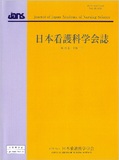Japanese
English
- 販売していません
- Abstract 文献概要
- 参考文献 Reference
要旨
目的:本研究は「中堅看護師の教育力」の概念分析を行い,その構成概念と定義を明らかにした.
方法:Rodgersの手法を用いた.データは医学中央雑誌Webを用いて「中堅看護師」AND「教育」を入力し,目的に合う文献31件を抽出した.
結果:属性は【看護実践モデル】【指導方略】【対人関係】【役割遂行】【問題解決行動】【自己研鑽】,先行要件は【看護の中核的存在】【キャリアデザインの認識】【成人学習者の特性】【組織支援体制】,帰結は【専門性の高い看護の提供】【キャリアデザインの促進】【成人学習者としての向上】【役割遂行の向上】を抽出した.
結論:中堅看護師の教育力とは,「現場における看護実践モデルとして,指導方略を用い,対人関係を構築して役割を遂行する中で問題解決に取り組むことで獲得する能力である.また,問題解決行動を繰り返し用いながら自己研鑽に努めることで向上できる能力である.」と定義した.
Objectives: In this study, we conducted a concept analysis to clarify and define a framework regarding the educational abilities of proficient nurses.
Methods: The Rodgers method was used in this study. Keywords searched on Igakuchuozashi databases were “proficient nurses,” and “education.” We extracted 31 studies based on their titles or abstracts.
Results: We extracted six attributes: nursing practice models, instructional strategies, interpersonal relationships, performance of roles, problem-solving behavior, and self-study. We extracted four antecedents: a core presence in nursing, awareness of career design, character of adult learners, and organizational support system. We extracted and identified four consequences: provision of highly specialized nursing care, facilitation of career design, improvement as an adult learner, and improvement of performance of roles.
Conclusion: The educational abilities of proficient nurses may be defined as follows: “In clinical practice, a nursing practice model should involve instructional strategies that enable nurses to learn through problem-solving while giving them the opportunity to form interpersonal relationships and perform their roles. In addition, developing problem-solving behavior, and selfstudy with self-reflection may help improve educational abilities.”
Copyright © 2020, Japan Academy of Nursing Science. All rights reserved.


